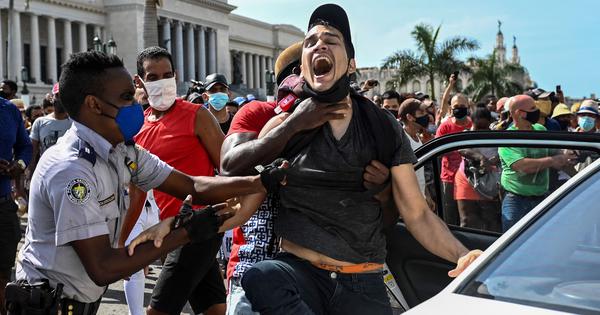Street protests erupted across Cuba on July 11, with crowds of Cubans demonstrating against food scarcity, medicine shortages and economic misery in their island nation. Some demanded “freedom” and the end of “dictatorship” – anti-government sentiments that were soon echoed in the United States by Cuban-Americans and politicians, including President Joe Biden.
In a televised address, Cuban President Miguel Díaz-Canel blamed the spontaneous demonstrations – by far the largest mass protests in decades – on United States interference and threatened a “battle in the streets”. Protesters say hundreds were arrested.
Here are four factors behind the current conditions in Cuba and the recent history behind this rare public outpouring of anger:
2018: New president
The Communist Party has run Cuba since the 1959 Cuban Revolution.
For five decades, its leader was the fiery, anti-American revolutionary Fidel Castro. Castro led the country until 2008, when he fell sick…
